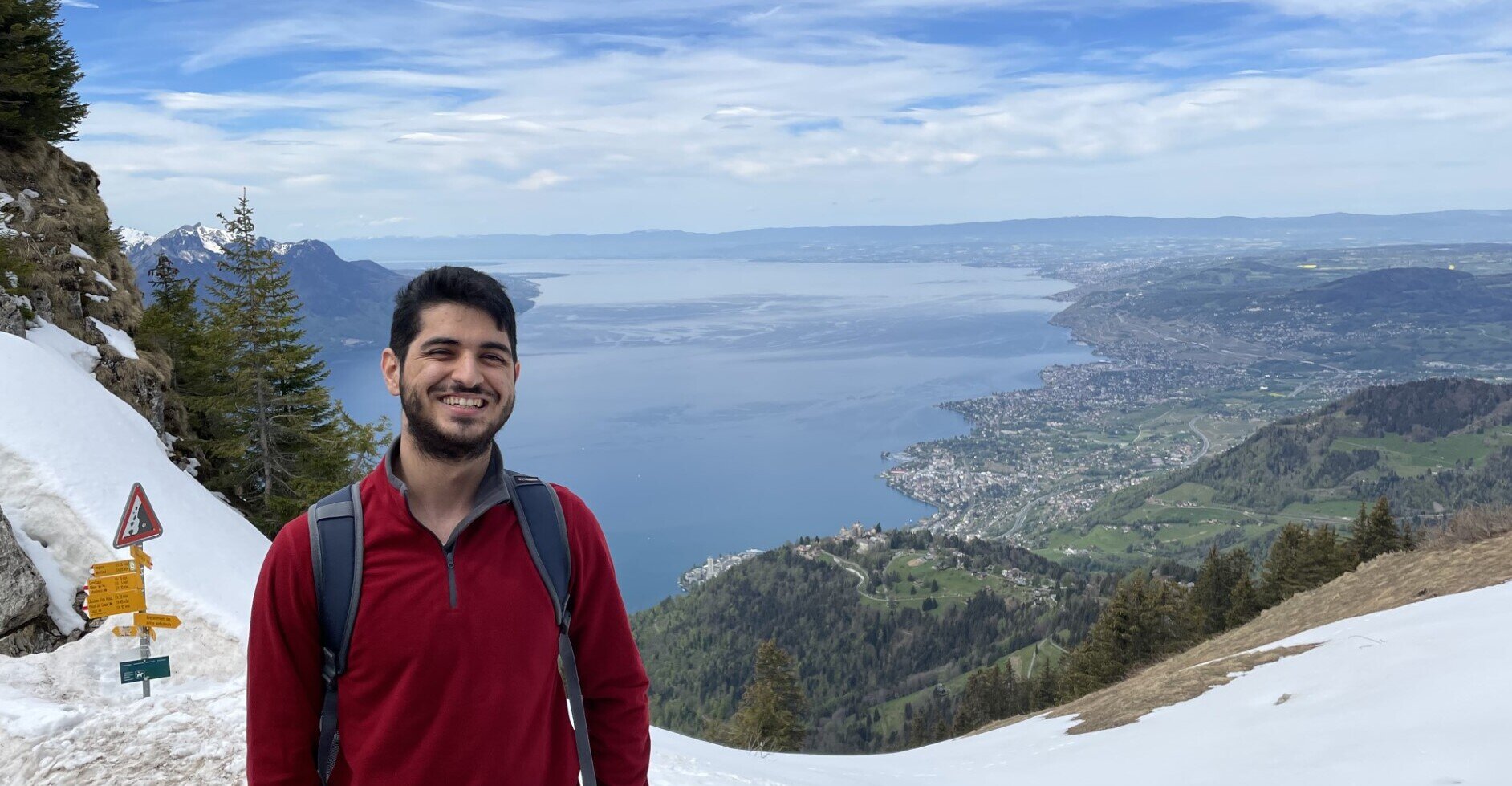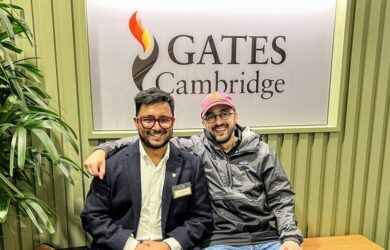
Kerem Çitak's research will focus on tissue engineering scaffolds for regenerative medicine, with an emphasis on healing skin wounds.
Kerem Çitak [2024] comes from a medical family, but he opted instead to go into Materials Science and Bioengineering. At the heart of his work at Cambridge, however, is an emphasis on healing. He arrived there through his interest in materials science and its potential to tackle global challenges. Indeed it is at the intersection of materials science and healthcare innovation that his academic interests converge. His PhD focuses on tissue engineering scaffolds for regenerative medicine, with an emphasis on healing skin wounds.
Kerem was born and raised in Istanbul. Both his parents are doctors – his father specialises in psychiatry and his mother is a pathologist. She would bring her microscope home and work in the evenings which meant Kerem got to look at the cancer cells she was studying.
He did well at school and passed the entrance exams for a good high school on the other side of Istanbul, but he didn’t enjoy what he calls ‘the rat race’ of the education system – teaching to the exam, for instance. It was not until he got to university that he began to take pleasure in learning. And he enjoyed it so much that he did a double major.
Undergraduate studies
Kerem won a scholarship to study at Sabanci University. He was drawn to the more comprehensive approach that Engineering offered to problem-solving compared to Medicine. He was also put off from studying Medicine by the hostile political environment to the medical profession at the time. Kerem did a double degree, graduating in Materials Science and Nanoengineering in 2018 and Molecular Biology, Genetics and Bioengineering in 2019. He says he has always been curious and he loved the way the subjects taught him to understand the composition of the living and non-living materials around us.
He was particularly interested in understanding how to make materials work in a more environmentally friendly way, for instance, how to produce biodegradable polymers. Polymers are present in everyday plastic items. “The aim was to create more sustainable polymers to counter plastic pollution,” he says. “The problem is that normal polymers are too good at their job. They are so durable that they will outlast humans.”
Switzerland
After graduating in 2019, Kerem started a master’s in Material Science and Engineering at EPFL in Lausanne, Switzerland. He had one semester of normal life before Covid struck and Lausanne became a virtual ghost town. Kerem stayed at the university as his mother had to work on the Covid wards in Turkey. “I didn’t want to introduce another risk factor,” he says.
The university course went online, but Kerem was a member of a group working on broad-spectrum antivirals, a class of compounds that can prevent multiple viruses from infecting an organism, even if they come from different or the same virus family. While the lab was originally focused on the flu, one of the antivirals was found to have an effect on the Covid virus. That meant Kerem’s was one of the only laboratories to continue functioning at the height of the pandemic, although with lots of restrictions. He graduated in March 2022 and says his broad-spectrum antivirals work enabled him to gain practical experience as a bioengineer. That work continued in start-up form, but Kerem decided to go off in another direction.
Aquatic experiments
While he was an undergraduate he had become an active member of a scuba society and it held an annual research symposium. In 2021, Kerem attended the symposium online and heard a US-based professor, Derya Akkaynak, talking about setting up a lab in Eilat in southern Israel to do aquatic experiments. He asked a question about this and as a result was invited to visit the laboratory. He accepted.
Kerem originally travelled to Eilat on a short internship but stayed longer because his work developed into a bigger project. He worked on the morphology of a type of sea grass that is endemic to the Red Sea, but had been spreading globally. “We wanted to understand why it was spreading,” he says, “what in its structure was giving it an advantage.” His team discovered that that type of sea grass was covered in trichomes, which are similar to the hairs on a land plants. “We hypothesised that that meant it could capture more nutrients more easily.”
Cambridge
Kerem left Eilat in August 2023, having decided he wanted to do a PhD in Materials Science. He applied to Cambridge and began working for a start-up company. He was impressed in his application to Cambridge that the Gates Cambridge community was so active. He had had a scholarship in Turkey at undergraduate level, but says he never met any similar scholars.
For his PhD he is working on regenerative medicine, especially in relation to engineering skin tissue. He will create a 3D network which can be repurposed according to the specific needs of a particular cell – in his case, he is looking to create a scaffold for tissue engineering. The aim is to build a cost-effective wound healing method for people with chronic ulcers [for instance, foot ulcers caused by diabetes], high-degree burns, bed sores or other wounds that the body cannot heal. “It needs to be a cheap and reproducible method,” says Kerem.
For Kerem it is a new departure, but he smiles when he talks about it. He may not have followed his parents into medicine, but his work is still about healing. “I did not become a doctor, but I am working on medical advances and healing. I want to be useful,” he says.












